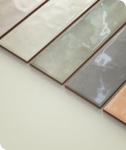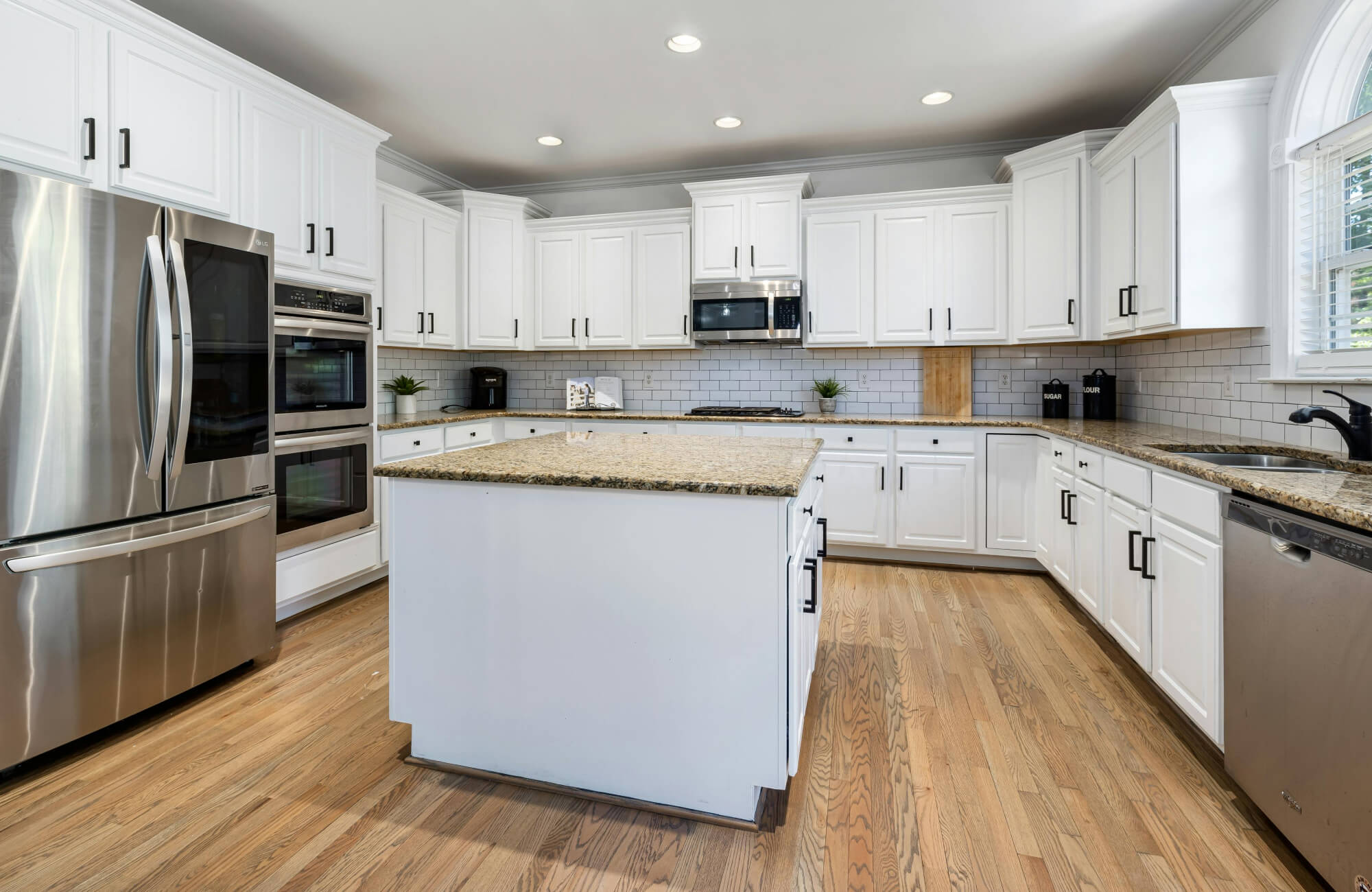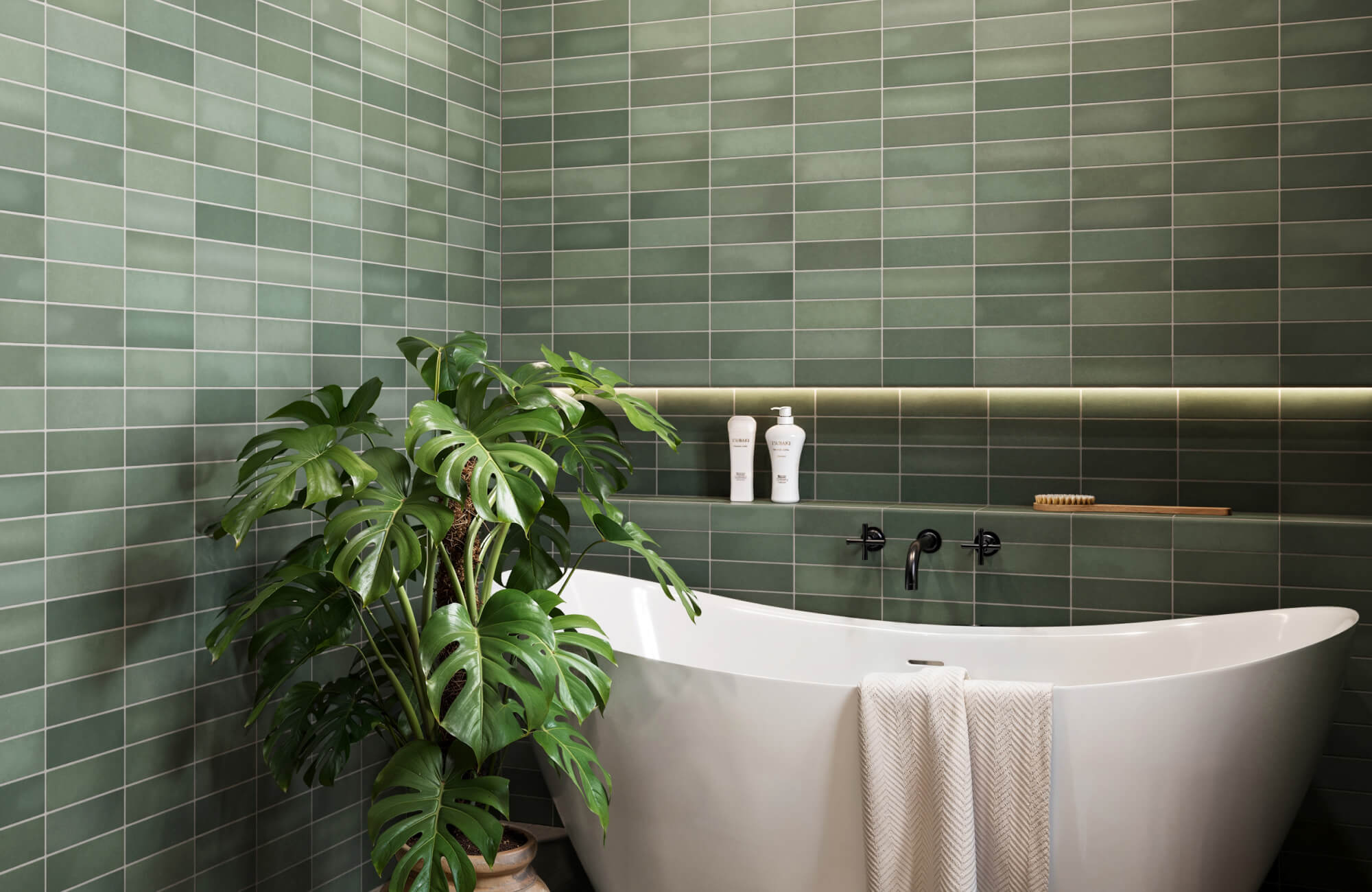Carrara marble, with its distinctive veining and timeless elegance, has long been a popular choice for bathroom design. However, its suitability for shower environments has been a subject of debate. While Carrara marble can undoubtedly add a touch of luxury to your bathroom, it's essential to consider its potential drawbacks and maintenance requirements before making a decision.

Unique Characteristics of Carrara Marble
Carrara marble is famously quarried from the Apuan Alps in Tuscany, Italy. Composed primarily of calcite—a crystalline form of calcium carbonate—this marble has been shaped over millions of years by geological processes, including tectonic activity and water erosion. These natural forces contribute to its distinctive veining patterns, which arise from mineral impurities and subtle variations during the crystallization process.
The color and texture of Carrara marble are also directly influenced by its geological origins. Slabs from higher quarry levels often exhibit lighter tones and finer veining, while those extracted from deeper layers tend to have darker, more pronounced patterns due to prolonged exposure to mineral-rich groundwater. Variations in the concentration of iron, graphite, and feldspar create unique veining characteristics, ranging from soft, feathery lines to bold, dramatic streaks. Carrara marble sourced from the Torano and Miseglia quarries, for instance, is prized for its delicate white color, while other quarries yield marble with more pronounced gray or blue undertones. These subtle differences make each slab not only a functional material but a piece of geological history and natural art.

Carrara Marble in Bathroom Design
Building on its unique characteristics, Carrara marble offers versatile applications that elevate any bathroom design. For walls, large formats emphasize its iconic veining and create a seamless, modern backdrop. On floors, particularly those in shower areas, small formats with a textured or honed finish provide increased slip resistance for extra safety. Extending this marble across both walls and floors also establishes a harmonious and expansive look, further enhanced by vanities and countertops crafted from the same material to tie the design together.
This adaptability makes Carrara marble a perfect choice across various design styles, seamlessly complementing both traditional and contemporary aesthetics. In traditional bathrooms, it pairs beautifully with ornate fixtures like crystal chandeliers and gold-plated faucets, creating a luxurious, sophisticated ambiance. For a contemporary, minimalist aesthetic, it works seamlessly with sleek fixtures and clean lines, offering a modern edge. To evoke a Mediterranean vibe, you can combine Carrara marble with warm, earthy tones and natural materials such as wood and terracotta. Regardless of your preferred style, this material effortlessly adds a touch of luxury and refinement to any bathroom design.

Durability in Wet Environments
While Carrara marble is undeniably beautiful, its suitability for wet environments, such as showers, requires careful consideration. While it can be used, it's important to understand its limitations and take necessary precautions to ensure its longevity.
Impact of Water and Porosity
Marble is a porous stone, which makes it vulnerable to water damage, especially in moisture-heavy spaces like showers. When marble absorbs water, it can lead to issues such as staining, etching, and deterioration, particularly if the water contains acidic substances or soap residues.
The extent of marble's porosity varies among types, making some varieties better suited for wet areas than others. Denser, less porous marbles—such as premium Carrara marble—are more resistant to water penetration and staining. When choosing marble, it’s essential to examine the surface carefully, looking for tightly packed grains that indicate durability. However, even the densest marble requires proper care to prevent damage.
Importance of Regular Maintenance
To protect your marble and extend its lifespan, regular maintenance is crucial. Consistent cleaning with a mild, pH-neutral cleaner effectively removes soap scum and grime without risking surface damage. Avoiding harsh chemicals or abrasive products further prevents scratches and dulling of the marble’s finish. Periodic sealing is equally important, as it creates a protective barrier against moisture, stains, and water damage. For optimal results, consider hiring a professional to apply a high-quality sealant.
Routine inspections are also key to identifying and addressing potential issues early. Checking for cracks, chips, or discoloration allows you to take prompt action, preventing minor problems from escalating into costly repairs. By combining regular cleaning, sealing, and inspections, you can ensure that your marble shower remains durable and visually stunning for years to come.

Practical Considerations
Installing Carrara marble in a shower requires careful planning and execution. Here's a breakdown of the process and associated costs:
Preparing for Installation
A successful installation of Carrara marble in a shower starts with meticulous preparation. Precise measurements of the shower area are essential to ensure you purchase the correct amount of materials, avoiding both shortages and costly excess. The base where these tiles will be installed must also be thoroughly cleaned, dried, and leveled to create a solid foundation for the tiles. Any unevenness or imperfections can compromise the final appearance and durability of the installation.
Selecting the right adhesive and grout is equally important; a high-quality, water-resistant adhesive ensures strong adherence to the base preventing any potential movement or shifting. Similarly, a grout designed for wet environments, like epoxy helps prevent water penetration and mold growth. Consulting with industry experts can help you choose the most suitable products for your specific project and the unique characteristics of Carrara marble.
Installation Process
Installing Carrara marble begins with meticulously leveling and priming the wall and floor surfaces to receive the tiles properly. Each tile is precisely measured, cut, and smoothed for a perfect fit. A waterproof membrane is also applied to the wall surfaces for added protection against moisture, a crucial step in preserving the integrity of the installation. The tiles are then laid out in a specific pattern to maintain the continuity of the marble's natural veins, using a high-quality adhesive applied with a notched trowel for even coverage. After allowing the adhesive sufficient time to dry, the gaps between tiles are filled with grout. The final step involves sealing the tiles and grout to shield them from moisture and chemical exposure, ensuring the marble's longevity and resistance in the humid conditions of a shower. This detailed work, ideally performed by professional installers, guarantees a flawless and enduring finish.
Cost Factors
The financial considerations for installing Carrara marble in a shower include material costs, which can vary significantly depending on the tile's thickness, finish, and origin. Typically, prices for Carrara marble range from $40 to $100 per square foot. Premium grades of the stone, known for their distinctive veining and fewer imperfections, command higher prices at the upper end of this spectrum.
Labor costs are another major component, influenced by the need for specialized skills and meticulous attention to detail. Professional installation generally costs between $10 and $35 per square foot, varying with the complexity of the project and geographic location. Additional expenses such as high-quality sealants and grouting materials may add $2 to $5 per square foot. Considering these factors, the overall cost for installing Carrara marble in a shower can range from $50 to $140 per square foot. While the upfront investment is significant, the durability, elegance, and long-term value of Carrara marble make it a worthwhile choice for many homeowners.
Alternative Materials for Showers
If maintaining porous materials sounds like too much hassle, there are plenty of alternative materials that can make your shower more durable and easier to care for. Let’s take a look at some options:
Marble Look Porcelain Tile
Porcelain tile is a highly durable and versatile material that can mimic the look of Carrara marble. It is resistant to water, stains, and scratches, making it an ideal choice for both shower walls and floors. Marble look porcelain tiles are also available in a wide range of colors, sizes, and finishes, allowing you to achieve your desired aesthetic. Additionally, they are relatively easy to clean and maintain and more budget-friendly, making them a popular choice for busy households.
Quartz
Quartz is a man-made material that is engineered to be incredibly durable and low-maintenance. It is resistant to heat, scratches, and stains, making it a great option for shower walls and countertops. However, quartz can be more expensive than other materials, and it’s not entirely immune to damage. Prolonged exposure to direct sunlight can cause discoloration, and its non-porous nature means it can feel less natural compared to true stone surfaces.
Granite
Granite is a natural stone that is known for its hardness and durability. It is an excellent choice for shower walls and floors, as it can withstand the harsh conditions of a bathroom environment. Granite is also available in a wide range of colors and patterns, from classic black and white to exotic and colorful options. However, granite can be more porous than other materials, so it's important to seal it regularly to protect it from water damage and staining.
Conclusion
Carrara marble can indeed be used in a shower, but it comes with important considerations. While its timeless elegance and natural beauty make it a popular choice, it is a porous material that requires diligent care and maintenance in wet environments. Proper sealing and regular upkeep are crucial to protect it from water damage, staining, and etching caused by soap, shampoo, and hard water deposits.
If you’re willing to invest the time and effort required to maintain it, Carrara marble can create a stunning and luxurious shower space. However, for those seeking a lower-maintenance alternative, materials like quartz or marble look porcelain tiles might be more practical options without compromising on style. For more expert advice and guidance on selecting the perfect material for your shower, reach out to Edward Martin to ensure you make the best choice for your space.








